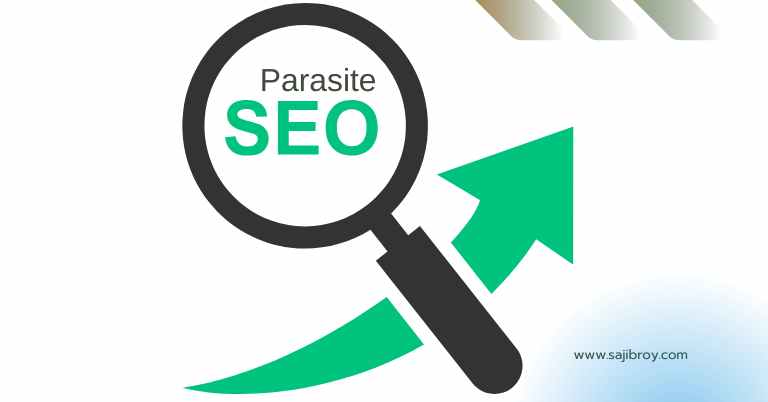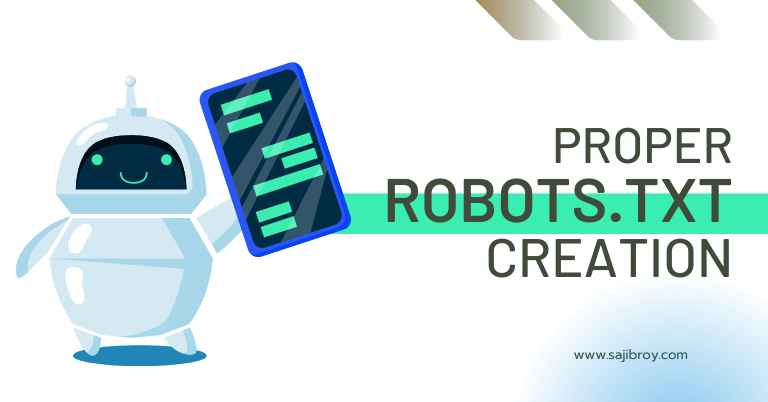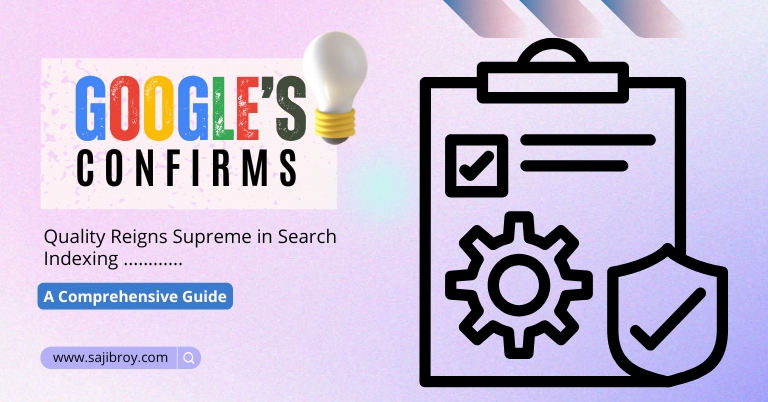The digital marketing landscape is evolving. It’s becoming more complex and competitive.
In this environment, SEO remains a critical strategy. It helps businesses stand out and reach their target audience.
But traditional SEO methods are no longer enough. They can be time-consuming and prone to human error.
Enter AI for SEO.
AI, or artificial intelligence, is transforming the way we approach SEO. It’s making processes more efficient and accurate.
AI can automate many SEO tasks. It can analyze data in real-time, predict trends, and even generate content.
But how exactly does AI work for SEO? And how can you leverage it to enhance your SEO strategies?
This article aims to answer these questions. It provides a comprehensive guide on how to use AI for SEO.
We’ll explore the role of AI in the SEO landscape. We’ll delve into how AI SEO tools can enhance efficiency and accuracy.
We’ll discuss how AI can aid in SEO data analysis. We’ll also compare AI-generated content with human-written content.
We’ll provide a step-by-step guide on using AI for on-page SEO optimization. And we’ll look at the future of SEO with AI’s growing influence.
We’ll also guide you on choosing and integrating the right AI SEO tools. And we’ll discuss how to measure the impact of AI on SEO.
The goal is to help you understand and utilize AI to enhance your SEO efforts. Whether you’re an SEO professional, a digital marketer, a content creator, or a business owner, this guide is for you.
So, are you ready to gravitate towards AI for SEO? Let’s dive in.
Let's See the Topic Overview
Understanding AI in the SEO Landscape
AI’s entrance into SEO is revolutionary. It changes the dynamics of how we optimize for search engines.
Initially, SEO was about keyword stuffing. It was about getting as many keywords into content as possible.
Today, SEO is much more sophisticated. It involves understanding user intent and delivering relevant content.
AI enhances this understanding. It provides insights that were previously unattainable.
With AI, SEO is no longer guesswork. It’s driven by data, patterns, and algorithms that continue to improve.
By leveraging AI, marketers can predict user behavior. They can tailor content that meets user needs precisely.
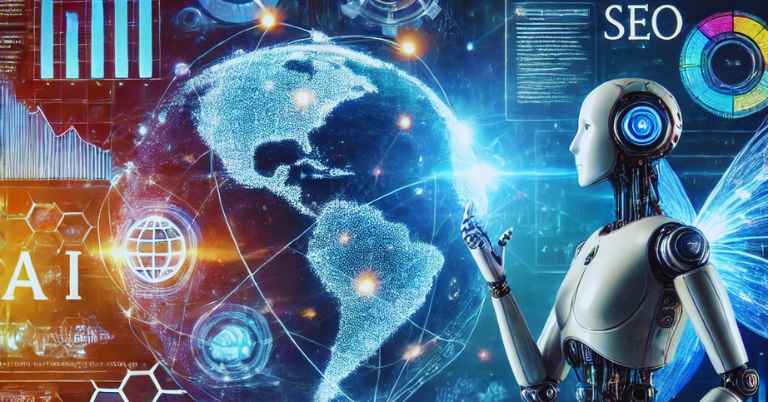
The Evolution of Search Engines and AI
Search engines have evolved dramatically. They are now more intelligent and capable.
Early search engines relied on basic indexing and keyword matching. This method was simple and often inaccurate.
With AI, search engines now understand context and semantics. They comprehend subtle nuances of language.
Machine learning models drive these improvements. They learn and adapt from vast datasets continually.
As a result, search engines can now deliver more relevant results. This makes them much more reliable for users.
AI’s Role in Modern SEO Strategies
AI plays a crucial role in modern SEO. It automates and streamlines tasks that were once manual.
For instance, AI can handle keyword research swiftly. It identifies the best opportunities with remarkable precision.
Content creation is another area where AI excels. Tools can generate optimized content with minimal input.
AI also offers critical insights into user engagement. It helps marketers refine strategies in real-time.
Overall, AI enhances every aspect of SEO efforts. It ensures strategies are both effective and efficient.
AI SEO Tools: Enhancing Efficiency and Accuracy
AI SEO tools revolutionize how we approach optimization. These tools offer speed, precision, and insights beyond human capability.
A crucial benefit of AI tools is automation. Tasks that were tedious become effortless. This frees up marketers to focus on strategy.
Accuracy is also greatly improved. AI tools analyze vast amounts of data with little margin for error. This enhances decision-making.
Real-time data processing is another key feature. AI tools can detect trends as they happen. This enables instant adaptations to SEO strategies.
Additionally, AI tools learn over time. They become smarter as they process more data, making them invaluable long-term assets.
Predictive capabilities set AI tools apart. They forecast SEO outcomes with impressive reliability. This forward-thinking approach is crucial.
Here’s a brief list of how AI tools enhance SEO:
- Automate routine tasks – Improve efficiency by saving time.
- Increase accuracy – Reduce errors by leveraging precise data analysis.
- Provide real-time insights – Adapt strategies swiftly with current data.
- Enhance learning – Continuously improve with machine learning algorithms.
- Predict future trends – Plan ahead with accurate predictions.
These features highlight the transformative potential of AI tools in SEO. Embracing them is essential for modern marketers.
Top AI SEO Tools to Consider
Choosing the right AI SEO tool is essential. With many options available, it’s important to understand their strengths and applications.
Some tools excel in keyword research. They provide comprehensive data on search volumes, trends, and competition.
For content creation, AI-driven platforms streamline the writing process. These generate SEO-optimized content that aligns with user intent.
AI tools also analyze site performance. They identify issues like broken links and slow loading times, critical for user experience.
Competitor analysis is another valuable feature. Some tools offer insights into what rivals are doing right or wrong.
When it comes to backlink analysis, certain AI tools shine. They pinpoint high-quality link opportunities to boost authority.
Consider these top AI SEO tools:
- SEMrush – Offers extensive keyword data and competitor analysis.
- Ahrefs – Excels in backlink analysis and SEO audits.
- Moz Pro – Provides insights on keywords and site health.
- Surfer SEO – Focuses on content optimization and competitive analysis.
- MarketMuse – Ideal for content strategy and optimization.
- BrightEdge – Uses AI for comprehensive SEO insights.
Beyond this list, specialized tools cater to unique SEO needs. It’s vital to choose tools aligned with specific business goals.
In essence, the right tools amplify SEO efforts significantly. They bridge the gap between complex data and actionable insights.
How AI Tools Automate SEO Tasks
Automation through AI is game-changing for SEO. These tools handle tasks that require time and precision.
One significant area is keyword research. AI tools sift through vast datasets swiftly, identifying valuable keywords efficiently.
Content optimization is also automated. Tools evaluate current content against successful competitors, suggesting improvements.
Link building benefits from AI, too. Tools automatically identify potential backlinks, making outreach more strategic.
Technical SEO audits are streamlined with AI. Tools detect errors like duplicate content and broken links, suggesting fixes.
Furthermore, AI tools monitor rankings consistently. They notify of any significant changes, providing a competitive edge.
In essence, automation cuts down manual labor in SEO. This increases productivity and allows marketers to focus on creativity.
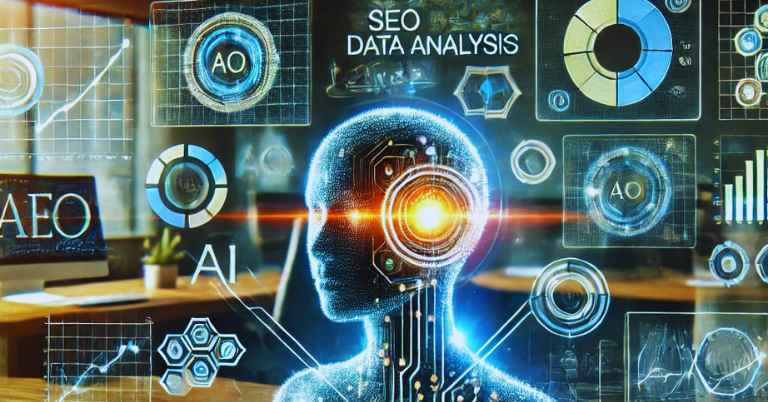
AI for SEO Data Analysis: Making Informed Decisions
AI is a powerhouse for data analysis in SEO. It provides insights that would take humans days to unravel.
Data-driven decisions are now more accessible. AI sifts through complex data to present actionable strategies.
AI tools enhance keyword strategy by analyzing search patterns and trends. This leads to more informed targeting choices.
Content performance is also deciphered with AI. It assesses engagement levels and suggests potential content improvements.
The real-time capabilities of AI are crucial. Immediate data analysis helps marketers respond swiftly to changes in search behavior.
AI-driven tools can also detect anomalies in traffic patterns. This is vital for identifying and addressing sudden drops or spikes.
A significant advantage is the correlation of large data sets. AI tools link various metrics to provide a holistic view of SEO efforts.
Here’s a list of ways AI facilitates better SEO decisions:
- Comprehensive data collection – Gather extensive data for thorough analysis.
- Pattern recognition – Identify trends and shifts in search behavior.
- Anomaly detection – Spot unusual patterns that might require attention.
- Performance metrics analysis – Evaluate the effectiveness of SEO efforts.
- Strategy optimization recommendations – Provide actionable insights for improvement.
These functions illustrate the indispensable role of AI in data analysis. Marketers who leverage AI gain a distinct edge.
Real-Time Data Analysis with AI
AI revolutionizes real-time data analysis. With it, marketers can adapt strategies on the fly.
Traditional data analysis methods were slow and static. In contrast, AI processes data as it flows in.
Real-time insights help detect sudden shifts in keyword popularity. Marketers can immediately adjust focus, preserving relevance.
AI also assists in monitoring competitor activities instantly. This enables a quick response to emerging threats.
Additionally, AI tools provide ongoing analysis of user behavior. This continuous feedback loop guides content improvements.
The speed at which AI delivers insights is unparalleled. Delays in reacting to trends or issues are minimized significantly.
Moreover, AI’s ability to handle big data ensures comprehensive coverage of relevant metrics. This holistic view aids decision-making.
Importantly, these real-time capabilities foster proactivity. Companies can seize opportunities and mitigate issues as they arise.
Predictive Analytics and Forecasting SEO Trends
AI excels in predictive analytics, a game-changer for SEO planning. It projects future possibilities based on current data.
Through AI, businesses can anticipate SEO trends. This foresight allows them to stay ahead of competitors.
Predictive analytics simplifies strategic planning. Marketers can align content development with upcoming search trends.
AI tools analyze historical data, identifying patterns likely to recur. This creates a more reliable roadmap for SEO success.
Moreover, predictive AI identifies potential risks. By foreseeing possible pitfalls, businesses can prepare contingencies.
These tools also enhance keyword strategy by forecasting shifts in search demand. Marketers can target emerging keywords early.
The implications extend to content strategy, too. Businesses can draft content that meets future user needs effectively.
Importantly, predictive analytics contributes to goal setting. Companies can outline realistic objectives based on data-driven forecasts.
Thus, AI not only informs the present SEO landscape but also shapes its future trajectory with precision.
AI-Generated Content vs. Human-Written Content
The rise of AI has introduced exciting capabilities in content creation. But how does it compare to human creativity?
AI-generated content can produce a significant volume of work rapidly. This speed is unmatched by human writers.
Efficiency is a key benefit. AI tools can draft content round the clock without fatigue.
Consistency is another strength. AI maintains a uniform style and tone throughout content.
However, creativity is a typical human domain. Creative narratives and unique storytelling are areas where humans excel.
AI lacks emotional depth and nuance, aspects crucial for engaging storytelling.
Furthermore, understanding context is challenging for AI. Human writers bring cultural insights and context-aware sensitivity.
Here’s how AI and human content creation stack up:
- Speed: AI writes faster, producing large volumes quickly.
- Creativity: Humans deliver more creative and engaging narratives.
- Consistency: AI provides uniformity in writing style.
- Contextual Understanding: Humans interpret cultural and situational nuances.
- Cost-Effectiveness: AI can be more economical in the long term.
Overall, a hybrid approach often proves effective. Combining AI’s efficiency with human creativity leads to optimal results.
Can AI Write SEO-Optimized Content Faster?
AI’s ability to churn out SEO content at speed is impressive. But does speed compromise quality?
Indeed, AI can write SEO-optimized content rapidly. It easily handles tasks like keyword integration.
AI’s algorithms are designed to follow SEO guidelines seamlessly. This ensures that content meets technical SEO standards.
The accelerated pace allows for timely publication. AI-generated content can capitalize on emerging trends instantly.
AI’s speed is especially beneficial for large websites. Consistently updating pages becomes a manageable task.
However, speed doesn’t always equate to value. Content needs to resonate with the target audience.
While AI excels at incorporating keywords, it may lack originality. Human oversight is crucial to refine tone and message.
Employing AI for speed must be balanced with quality control. This guarantees the content aligns with brand values and audience needs.
The answer is yes, AI writes SEO content faster. But a blend of pace with human insight is ideal for quality assurance.
The Quality of AI-Generated Content for SEO
Quality often divides AI-generated content and its human-written counterparts. But there’s potential in AI’s capabilities.
AI efficiently generates SEO-friendly content. It incorporates keywords and adheres to structure guidelines.
While AI masters these technical elements, it struggles with engaging narrative and personalization.
AI lacks the emotional intelligence of human writers. Complex topics may end up simplified or lack depth.
Creative flair is generally subdued. AI content might feel formulaic without a unique voice.
Moreover, AI-generated content sometimes misses contextual subtleties. This can lead to missed audience connections or inaccurate interpretations.
Despite these limitations, technology is advancing. AI’s capacity for natural language processing is improving.
Tools are evolving to produce more sophisticated and nuanced writing. Yet human editing remains vital to enhance the content’s appeal.
In essence, AI-generated content is technically sound. But collaboration with human editing elevates its impact and effectiveness.
Implementing AI for On-Page SEO Optimization
AI’s potential to optimize on-page SEO is tremendous. It provides tools to refine content for search engine compatibility.
AI can evaluate various page elements. From content length to keyword density, it handles analysis seamlessly.
Many traditional SEO tasks become automated. This frees human resources for more strategic planning.
AI improves accuracy in identifying content improvements. It detects elements that hinder a page’s performance.
Here’s how AI benefits on-page optimization:
- Keyword Placement: Ensures strategic and natural keyword integration.
- SEO Analysis: Offers insights into current SEO strategies and their effectiveness.
- Content Suggestions: Provides alternatives for enhancing content quality.
By analyzing large datasets, AI predicts optimal changes. This aids in improving search rankings efficiently.
Moreover, AI personalizes content recommendations. These suggestions are based on the latest user behavior patterns.
The technology adapts quickly to algorithm changes. Keeping your SEO practices updated is easier with AI.
AI for on-page SEO optimization not only enhances quality but also saves time. It combines technological precision with strategic marketing intelligence.
Step-by-Step Guide to Using AI for On-Page SEO
To leverage AI in on-page SEO, follow these straightforward steps. Each will enhance your page’s performance and searchability.
- Identify Key Areas for Optimization: Determine which aspects of your on-page SEO need improvement.
- Select AI Tools: Choose from various AI SEO tools that specialize in content optimization.
- Analyze Current Content: Run your existing content through these AI tools for a detailed analysis.
- Keyword Analysis: Let AI tools suggest relevant keywords and appropriate density for your niche.
- Implement AI Suggestions: Use AI-generated insights to modify content structure, headings, and tags.
- Evaluate Content Quality: Check AI-provided quality metrics, ensuring content is both SEO-friendly and engaging.
- Continuously Monitor Performance: Use AI tools to track how changes affect performance over time.
- Refine Strategy Regularly: Continually adapt your strategy based on real-time AI feedback.
Each step is pivotal in enhancing your SEO strategy. AI’s analytical power helps prioritize and implement changes effectively.
The use of AI in SEO streamlines processes. It provides immediate feedback and tangible results.
By following these steps, your on-page SEO can become more dynamic. AI helps adjust quickly to search engine updates.
Consistency and adaptability are at the heart of successful SEO. AI provides the tools to maintain both efficiently.
Enhancing Meta Tags and Content Relevance with AI
Meta tags play a crucial role in SEO. AI offers the capability to optimize these elements effectively.
AI analyzes current tag usage. It identifies opportunities to better incorporate relevant keywords.
Optimizing meta tags enhances a page’s visibility. AI can suggest more effective tag versions for increased search relevance.
Content relevance is equally critical. AI evaluates content depth and its alignment with user queries.
Through natural language processing, AI assesses content quality. It identifies areas where relevance can be improved.
AI tools offer data-driven insights to refine content. They recommend actionable changes for more robust SEO.
Tags and content that are optimized improve click-through rates. AI ensures they appeal directly to user intent.
Enhanced relevance leads to higher engagement. AI assists in aligning your content with audience expectations.
Incorporating AI-driven strategies revitalizes your SEO efforts. It ensures that your content is both discoverable and engaging.
The Future of SEO: AI’s Growing Influence
AI is continuously reshaping the SEO landscape. Its influence extends beyond mere automation to profound strategic enhancements.
As algorithms evolve, AI helps predict and adapt to these changes. Keeping SEO strategies agile is crucial for future success.
AI’s role in SEO is expanding. It’s not just about keywords anymore; it’s about understanding user intent and context.
This shift is making traditional SEO practices obsolete. AI opens new pathways for more sophisticated search engine strategies.
The potential of AI in SEO is immense. It offers the ability to forecast trends and tailor content accordingly.
Looking ahead, AI will likely become indispensable. Its integration with SEO practices will mark a new era in digital marketing.
Voice Search and Conversational AI in SEO
Voice search is gaining traction rapidly. It changes how users interact with search engines, prioritizing natural language.
Conversational AI interprets complex queries more effectively. It understands nuances better than traditional search algorithms.
As voice searches grow, SEO must adapt. Creating content that reflects conversational tones becomes more critical.
AI helps identify patterns in voice queries. It suggests optimizations to align with these unique user behaviors.
In this new landscape, AI ensures content stays relevant. It enables websites to cater to evolving search habits seamlessly.
Ethical Considerations in AI-Driven SEO
AI in SEO presents ethical challenges. There is potential for bias in algorithmic decisions.
It’s crucial to address these biases. Ensuring AI tools are fair and transparent is paramount.
The use of AI must adhere to privacy standards. Handling sensitive data with care is a significant responsibility.
Moreover, AI-generated content must be original. Avoiding plagiarism while maintaining quality and value is essential.
Balancing AI efficiency with ethical practice is key. This ensures that AI continues to enhance SEO without compromising integrity.
Choosing and Integrating the Right AI SEO Tools
Selecting the right AI SEO tools can transform your digital strategy. These tools bring precision, speed, and scalability.
Before you choose, understand your business needs. Each tool serves different purposes and solves unique challenges.
AI SEO tools can automate routine tasks. This allows more time for creative strategy development and execution.
Look for tools offering real-time data insights. They should enhance decision-making with up-to-date information.
Compatibility with existing systems is key. Ensure seamless integration with current platforms to avoid disruptions.
Consider ease of use when selecting tools. Intuitive interfaces promote efficiency and reduce training time.
Moreover, assess the vendor’s support and updates. Regular updates ensure tools remain relevant and effective.
Finally, keep scalability in mind. Choose tools that grow with your business needs and market changes.
Evaluating AI SEO Tools for Your Business
Evaluating AI SEO tools requires a methodical approach. Start by identifying your specific business goals and needs.
Determine which tasks you want to automate. This clarity will guide your selection process and tool evaluation.
Next, research the available tools. Compile a list of features each tool offers that align with your needs.
Analyze the user feedback and testimonials. This provides insight into the practical benefits and drawbacks of each tool.
Consider running trials or demos. These give a hands-on experience of the tool’s interface and functionality.
Assess the tool’s ability to provide data security. It must comply with privacy regulations to protect your sensitive information.
Integrating AI Tools with Existing SEO Workflows
Integrating AI tools smoothly into existing workflows is vital. Start by mapping out your current SEO processes.
Identify where AI can offer the most significant improvements. Focus on areas where automation can save time and enhance outcomes.
Communicate changes clearly with your team. This helps in smoothing the transition and ensuring everyone understands new processes.
Provide adequate training for using AI tools. Ensuring your team is comfortable with the tools maximizes their potential benefits.
Monitor the integration process. Regular checks allow for adjustments and optimizing the use of AI tools.
Finally, measure the impact on productivity and results. Use metrics to evaluate the success of the integration and make necessary tweaks.
Measuring the Impact of AI on SEO
Understanding the impact of AI on your SEO strategy is crucial. Measurement guides adjustments and validates investments.
Start by identifying clear metrics. Common metrics include organic traffic, keyword rankings, and conversion rates.
AI tools can track these metrics efficiently. They provide comprehensive reports that highlight areas of success and need for improvement.
Beyond metrics, consider qualitative outcomes. These include user engagement and content relevance.
Regular reviews of AI performance ensure continued alignment with business goals. Schedule periodic assessments to maintain strategy effectiveness.
Finally, use insights to refine your SEO strategy. Learning from data-driven results is vital for constant improvement.
ROI of AI-Powered SEO Initiatives
Calculating the ROI of AI in SEO requires a detailed approach. It begins with setting clear objectives for your initiatives.
Identify the specific costs involved. These include software subscriptions, training, and any additional resources.
Next, track the benefits realized. Benefits could be increases in web traffic, higher conversion rates, or time savings.
Compare these benefits to your costs. This comparison will highlight financial gains or losses over time.
ROI doesn’t always mean immediate profits. Long-term gains and strategic advantages are equally important to consider.
Continuous Learning and Adaptation with AI in SEO
AI in SEO is not static. Continuous learning and adaptation ensure maximum benefit from these tools.
Stay updated on AI developments. Advances in technology can offer new opportunities for SEO enhancement.
Encourage ongoing training for your team. Knowledge of the latest AI features and techniques is essential.
Adaptation involves more than just knowledge. It requires implementing changes quickly to remain competitive.
Regularly assess the effectiveness of AI tools. Make data-driven decisions to adjust strategies as needed.
Ultimately, embracing learning and change fosters a dynamic SEO strategy. This approach keeps your brand competitive and relevant.
Conclusion
The Synergy of AI and Human Expertise in SEO
As the landscape of SEO evolves, the integration of AI offers unparalleled advantages. It automates repetitive tasks and enhances precision, allowing humans to focus on strategic creativity and insights. This synergy between AI and human expertise is the future of SEO.
AI empowers SEOs to work smarter, not harder. It provides data-driven insights that inform better decision-making. These insights are crucial in crafting campaigns that resonate with target audiences.
However, while AI optimizes processes, human intuition remains irreplaceable. Humans add context, creativity, and narrative to content, elements that AI cannot fully replicate. These aspects are fundamental in building authentic engagement and trust.
In conclusion, the union of AI capabilities with human creativity maximizes SEO potential. Together, they drive innovation and deliver superior results. By balancing automation with personal insight, businesses can achieve sustainable SEO success.
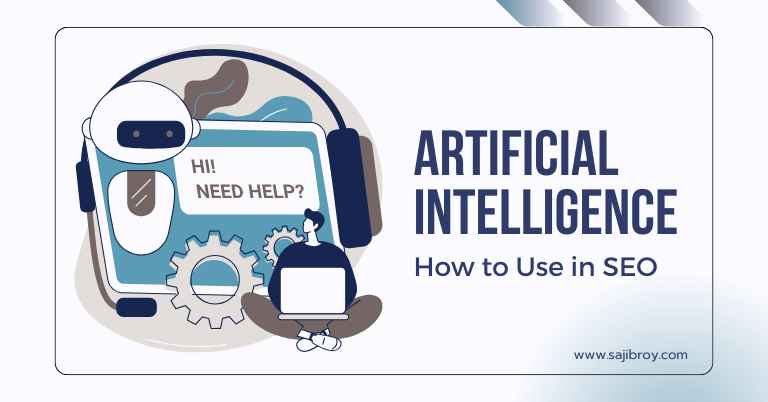
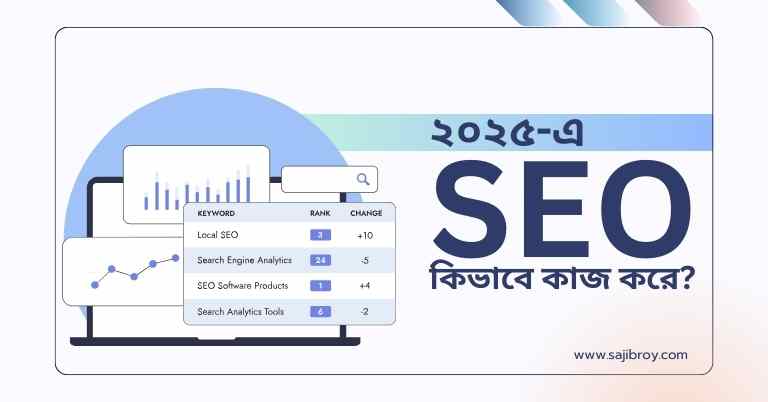


![6-Month Local SEO Plan [Download Your Complete Proposal Template]](https://www.sajibroy.com/wp-content/uploads/2025/01/6-Month-Local-SEO-Plan-Download-Your-Complete-Proposal-Template.jpg)

